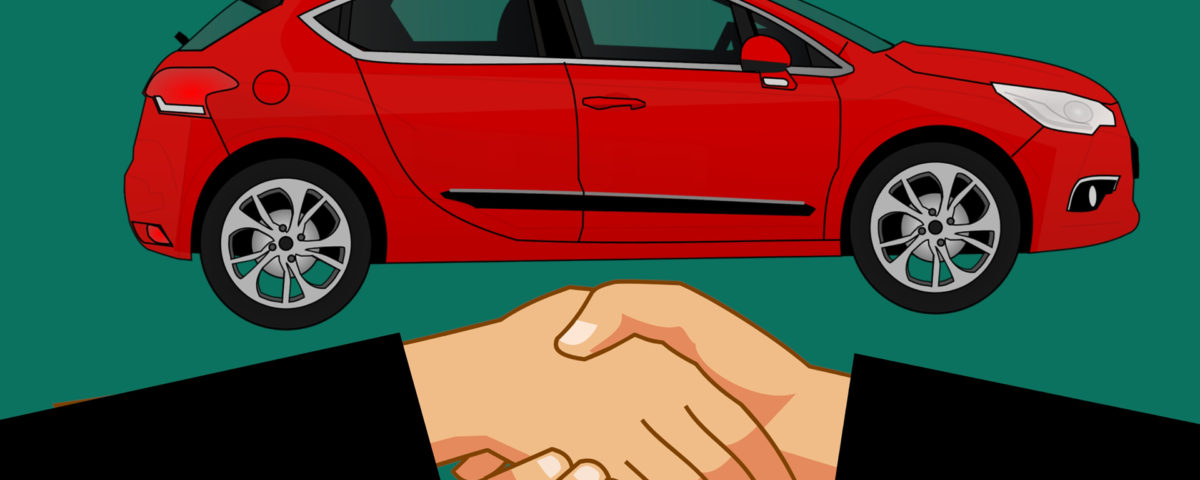The internet can be a wonderful tool for buying and selling automobiles. You can
shop for thousands of new and pre-owned vehicles, 24 hours a day, from the
comfort and convenience of your own home – even in your pajamas. Online
marketplaces like AutoTrader, eBay, Cars.com and Craigslist connect buyers and
sellers across the world, but not all of those buyers and sellers are honest.
Thousands of people each year still fall victim to fraud when buying and selling
vehicles online.
Advance Fee Fraud Scams
The most common scam that people encounter when selling a vehicle online is the
“419 Nigerian Scam”, also known as the “Advance Fee Scam”. A prospective buyer
emails you (often in very poor English) and says that he is interested in your
vehicle and agrees to your selling price. He claims that he a previous deal fell
through, and he has a cashier’s check in an amount that is several thousand dollars
more than your selling price. He says that he will FedEx you the cashier’s check
and asks that you wire the difference back to him via Western Union, once the
funds have posted to your account. How trusting of him, right? Not so much.
Cashier’s Checks are not like cash!
It is a common misconception that cashier’s checks are as good as cash, and that
they clear the bank within 48 hours. In reality, your bank is required to make the
funds available in your account within 48 hours. However, it may take up to two
weeks for the check to actually clear. The counterfeit cashier’s check will
eventually bounce, and then you are in real trouble. No only will you have lost the
thousands of dollars that you wired to the scammer, but depositing or cashing a
counterfeit check, even unknowingly, is a felony.
Beware of fake car ads
Sellers of automobiles are not the only ones at risk online. Scammers target eager
buyers by posting popular vehicles for sale at enticing prices. The post looks
perfectly legitimate, complete with pictures, VIN and even a free Carfax report.
The seller claims that the vehicle is being stored in the warehouse of a
transportation company that will ship the vehicle and handle all DMV paperwork.
To appear even more genuine, the seller says that he will process the transaction
through the “eBay Safe Trade”, or similar, department. No such department exists,
nor does the vehicle! The pictures, VIN and Carfax report have been expertly
fabricated or stolen from another seller’s post. Some scammers even create
elaborate, professional websites to make you think that the transportation
company, escrow company and “safe trade department” are real.
How to avoid falling victim to the scams
The online market places work hard to try to protect buyers and sellers from these
scams, but there is only so much they (and the authorities) can do. Most of the
scammers live in foreign countries (as evidenced by their abysmal English) and use
“spoofed” email addresses. Even if the authorities could track them down, they are
almost always outside US jurisdiction. So, it is up to you to protect yourself! Here
are five tips to help you avoid falling victim to an internet automobile scam:
1. Never sell your vehicle to someone in a foreign country. Think about it – they
have cars in Nigeria and other countries, so why would someone want to buy yours
and incur the shipping costs and import fees? Why would someone in the UK,
where they drive on the left side of the road, want to buy an American car with the
steering wheel on the wrong side?
2. Never trust someone who offers to pay you more than you are asking for your
car. If an honest person had a certified check for the wrong amount, he or she
would simply return to the bank and get a new one.
3. Be wary of a buyer who insists on using an escrow service to “safeguard” the
transaction. Scammers often setup fake escrow services that claim an affiliation
with AutoTrader, eBay, or eTRUST. None of these companies operates or partners
with an escrow service.
4. Never ship your car to the buyer or allow a seller to ship a car to you (unless
the seller is a legitimate car dealership). The buyer and seller should arrange to
meet and complete the transaction in person.
5. Secure payment for a vehicle before transferring the title to the buyer. Insist on
certified funds, and verify the check with the issuing bank before you release the
vehicle.
Buying or selling a vehicle online can be a fun and financially rewarding experience,
but it is not without risk. Before you buy or sell, review the fraud awareness
information provided by the various online marketplaces. And, above all, trust your
instincts. If something feels hinky, it probably is.

